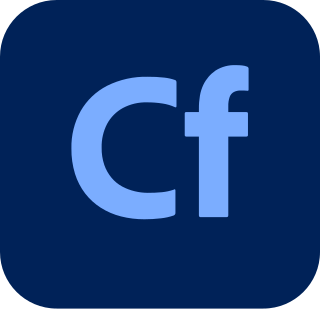Related Research Articles

The Apache HTTP Server is a free and open-source cross-platform web server software, released under the terms of Apache License 2.0. It is developed and maintained by a community of developers under the auspices of the Apache Software Foundation.

PostgreSQL, also known as Postgres, is a free and open-source relational database management system (RDBMS) emphasizing extensibility and SQL compliance. PostgreSQL features transactions with atomicity, consistency, isolation, durability (ACID) properties, automatically updatable views, materialized views, triggers, foreign keys, and stored procedures. It is supported on all major operating systems, including Linux, FreeBSD, OpenBSD, macOS, and Windows, and handles a range of workloads from single machines to data warehouses or web services with many concurrent users.
A web service (WS) is either:
AOLserver is AOL's open source web server. AOLserver is multithreaded, Tcl-enabled, and used for large scale, dynamic web sites.

Adobe ColdFusion is a commercial rapid web-application development computing platform created by J. J. Allaire in 1995. ColdFusion was originally designed to make it easier to connect simple HTML pages to a database. By version 2 (1996) it had become a full platform that included an IDE in addition to a full scripting language.
NaviServer is a high performance web server written in C and Tcl. It can be easily extended in either language to create web sites and services; there are over 35 modules available

lighttpd is an open-source web server optimized for speed-critical environments while remaining standards-compliant, secure and flexible. It was originally written by Jan Kneschke as a proof-of-concept of the c10k problem – how to handle 10,000 connections in parallel on one server, but has gained worldwide popularity. Its name is a portmanteau of "light" and "httpd".

LAMP is an acronym denoting one of the most common software stacks for many of the web's most popular applications. However, LAMP now refers to a generic software stack model and its components are largely interchangeable.

Catalyst is an open source web application framework written in Perl, that closely follows the model–view–controller (MVC) architecture, and supports a number of experimental web patterns. It is written using Moose, a modern object system for Perl. Its design is heavily inspired by frameworks such as Ruby on Rails, Maypole, and Spring.
Selenium is an open source umbrella project for a range of tools and libraries aimed at supporting browser automation. It provides a playback tool for authoring functional tests across most modern web browsers, without the need to learn a test scripting language. It also provides a test domain-specific language (Selenese) to write tests in a number of popular programming languages, including JavaScript (Node.js), C#, Groovy, Java, Perl, PHP, Python, Ruby and Scala. Selenium runs on Windows, Linux, and macOS. It is open-source software released under the Apache License 2.0.

A web template system in web publishing allows web designers and developers work with web templates to automatically generate custom web pages, such as the results from a search. This reuses static web page elements while defining dynamic elements based on web request parameters. Web templates support static content, providing basic structure and appearance. Developers can implement templates from content management systems, web application frameworks, and HTML editors.
Nginx is a web server that can also be used as a reverse proxy, load balancer, mail proxy and HTTP cache. The software was created by Russian developer Igor Sysoev and publicly released in 2004. Nginx is free and open-source software, released under the terms of the 2-clause BSD license. A large fraction of web servers use Nginx, often as a load balancer.

OpenCL is a framework for writing programs that execute across heterogeneous platforms consisting of central processing units (CPUs), graphics processing units (GPUs), digital signal processors (DSPs), field-programmable gate arrays (FPGAs) and other processors or hardware accelerators. OpenCL specifies programming languages for programming these devices and application programming interfaces (APIs) to control the platform and execute programs on the compute devices. OpenCL provides a standard interface for parallel computing using task- and data-based parallelism.
Google Chrome is a cross-platform web browser developed by Google. It was first released in 2008 for Microsoft Windows, built with free software components from Apple WebKit and Mozilla Firefox. Versions were later released for Linux, macOS, iOS, and also for Android, where it is the default browser. The browser is also the main component of ChromeOS, where it serves as the platform for web applications.
Resin is a web server and Java application server developed by Caucho Technology. There are currently two versions available: Resin (GPL), which is free for production use, and Resin Pro, designed for enterprise and production environments with a licensing fee. Resin supports the Java EE standard and features a mod_php/PHP-like engine known as Quercus.
CppCMS is an open-source web application framework for the C++ programming language developed by Artyom Beilis. The primary goal of CppCMS is building performance-demanding web applications. It may also be used for embedded web applications for consumer devices. The library is available under MIT license. It currently targets POSIX-compatible platforms as well as Microsoft Windows.

Shinken is an open source computer system and network monitoring software application compatible with Nagios. It watches hosts and services, gathers performance data and alerts users when error conditions occur and again when the conditions clear.

Gatling is a load- and performance-testing framework based on Scala, Akka and Netty. The first stable release was published on January 13, 2012. In 2015, Gatling's founder, Stéphane Landelle, created a company, dedicated to the development of the open-source project. According to Gatling Corp's official blog, Gatling was downloaded more than 1,000,000 times (2021). In June 2016, Gatling officially presented Gatling FrontLine, Gatling's Enterprise Version with additional features.
References
- ↑ "Open Testware Reviews: OpenSTA (Open System Testing Architecture)". Tejas Software Consulting. 2003. Retrieved 2008-09-25.